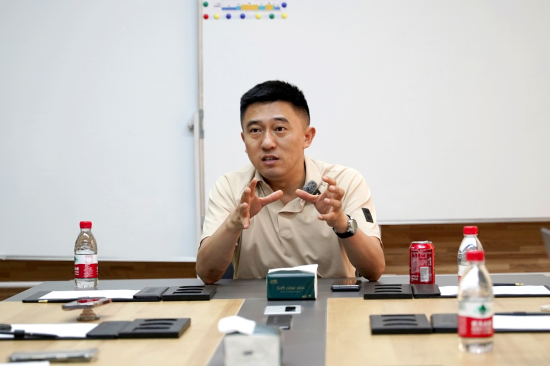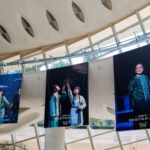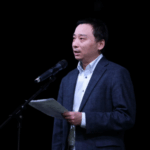A top student from Nanjing University and a German-educated master’s graduate has become a leading seller of salad meals on Pinduoduo while also supplying major membership supermarkets. Jiang Fangjun, born in the 1980s in Zhenjiang, Jiangsu, is the founder of the salad brand “First Farm.” Whenever people express amazement at his successful career shift, he earnestly responds, “I’ve never strayed from my expertise.”
Career Shift: AI-Powered Vegetable Selection—Staying True to His Expertise
Born in Zhenjiang, Jiangsu, Jiang Fangjun is an outstanding graduate of Nanjing University’s School of Information Management and holds a master’s degree in computer science from the University of Würzburg in Germany. This year marks his 15th year since returning to China to start his business.
After completing his master’s degree, Jiang did not stay long in the software development field. Instead, he returned to Jiangsu to pursue his vision of “producing salad meals with the precision of manufacturing fine instruments.” Today, he operates two smart salad production facilities in Shanghai’s Qingpu district and Changzhou, Jiangsu, along with ten partner farms across different climate zones in China. His factories produce 15,000 tons of salad meals annually, supplying well-known membership supermarkets and ranking among the top sellers on e-commerce platforms like Pinduoduo.
While many marvel at his successful transition from IT to the salad industry, Jiang insists he has never left his professional roots—instead, they have greatly benefited his work.
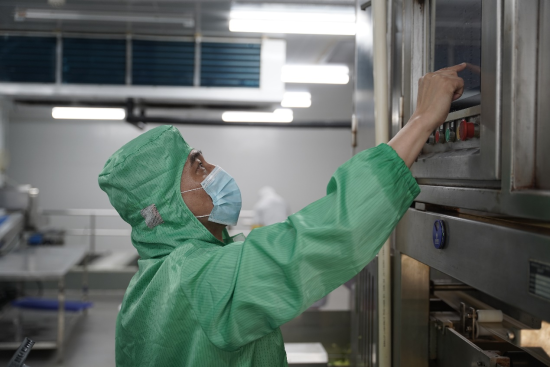
Jiang explains that computer science is a versatile discipline applicable across industries. When he returned to China, his goal was simple: to find a lifelong pursuit that could modernize traditional sectors using advanced technology.
Germany’s strict food safety standards inspired his entrepreneurial idea—applying computer technology to revolutionize agriculture, making food production transparent and intelligent for healthier consumption. Initially, he experimented with a subscription-based fresh produce service but later pivoted to salad meal production due to market immaturity.
The transition was far from simple. His IT background enabled him to analyze market trends using big data, leading him to the niche but demanding salad industry. After establishing his first factory in Changzhou, he later invested in Shanghai’s automated facility, becoming the first in China to integrate AI into salad production—a breakthrough that solidified his company’s competitive edge.
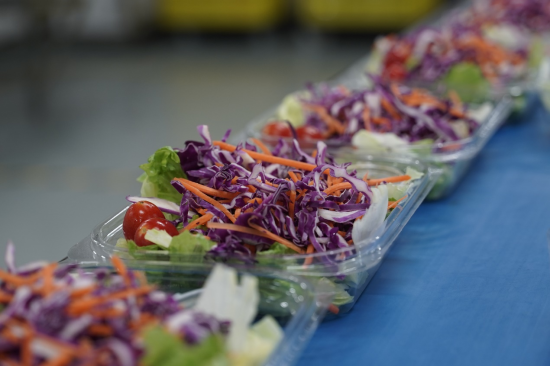
▲ Packaged salad meals ready for nationwide distribution via platforms like Pinduoduo.
How does AI ensure salad quality? Inside Jiang’s Shanghai factory, a fully automated production line operates at a constant 5°C. At the end of the conveyor belt, a stainless-steel inspection chamber equipped with high-intensity lighting and infrared sensors meticulously examines each leaf. Unlike human workers, whose efficiency declines over time, the AI-powered system maintains a 99.99% accuracy rate, processing over one ton of greens per hour.
“Our washing process is nothing like home kitchen prep!” Jiang emphasizes. Salad greens undergo triple sorting, quadruple disinfection, and thorough washing to remove contaminants, pesticides, and bacteria before being spun dry and packed. The stringent process requires sterile conditions, ice-cold purified water, and at least 60 seconds per cleaning stage—resulting in products that exceed GAP safety standards and even surpass the quality of international supermarket offerings.
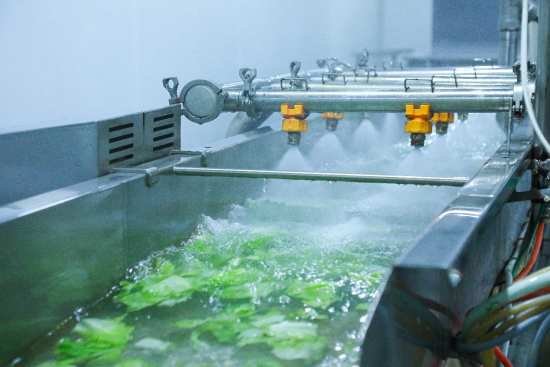
▲ Salad greens undergo triple sorting and quadruple disinfection upon arrival at the factory.
Jiang invests millions annually in product testing, ensuring each bag of salad comes with dual reports on raw materials and finished products. The smart factories, developed in collaboration with academic institutions, have doubled operational efficiency compared to conventional facilities.
Nationwide Impact: Partner Farms Boost Annual Incomes by ~50 Million Yuan
On Jiang’s Pinduoduo store, colorful ready-to-eat salad combinations attract health-conscious shoppers, with many praising the convenience of fresh,
Nanjing University
University of Würzburg
First Farm
(If referring to a different “First Farm,” additional context would be needed.)
Qingpu district
Changzhou
Pinduoduo
GAP
*(Note: If you meant a different “GAP” (e.g., a geographical or cultural site), please clarify!)*

